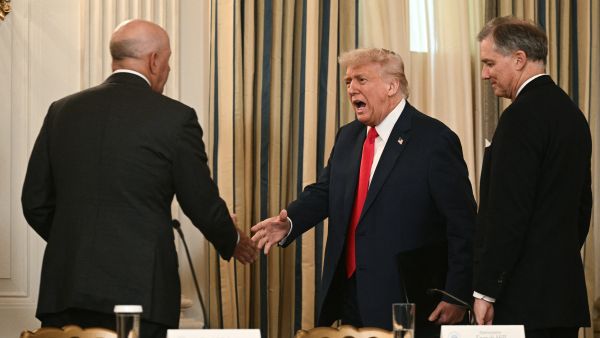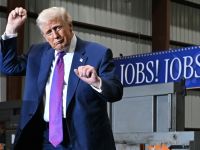ALBAWABA - Investors and professors are worried that Wall Street experts may start lowering their reports because U.S. President Donald Trump publicly criticized Goldman Sachs' economic research on tariff risks. This could mean that markets don't get correct and independent information.
Big banks like Goldman Sachs do a lot of research that helps institutional investors like hedge funds and asset managers decide how to put their money to work. But Trump said that Goldman Sachs, its economic team, and CEO David Solomon were giving "false forecasts," which started an argument about what this meant for the ethics of market research.
Reuters says that Trump's comments have already led employees at one Wall Street bank to talk about how to handle government data informally. This is especially true since Trump fired the head of the Bureau of Labor Statistics and said, without proof, that labor data was being used for political purposes. The bank hasn't changed how it does study yet.
Experts in the field say that repeated comments from the Oval Office could make scientists feel like they need to hide their opinions. David Rosenberg of Rosenberg Research said that the effect will rest on how tough economists are and how willing their bosses are to stand up for them. Jack Ablin, chief investment analyst at Cresset Capital, warned that any decrease in independent analysis would hurt small investors the most because they don't have the resources to do their own study.
Trump has had a lot of problems with private companies like this in the past. He has attacked companies in the past for passing on price costs to customers and getting involved in business deals, like one with Nvidia to give the government a portion of the money made from selling AI chips.
David Mericle, Goldman's chief U.S. economist, supported the bank's research in an interview with CNBC and promised to keep giving what the bank thinks is useful analysis.
Self-censorship is starting to show up in other places. J.P. Morgan Asset Management's Michael Cembalest said he has kept some of his public views on tariffs quiet, even though CEO Jamie Dimon told analysts they should speak their minds. Experts say Goldman Sachs could hurt its image if it is seen as unfair.
Mike Mayo of Wells Fargo said that research that isn't biased is what makes investment banks trustworthy. Sources say that research on Wall Street is already carefully checked to make sure it's fair. They say that limiting experts' freedom to speak out could make investments more expensive and risky, lower market liquidity, and discourage involvement from other countries.
Concerns have been raised in the past: after the dot-com bubble burst in the late 1990s, a probe showed that analysts had given unwarranted "buy" advice to win bank business. This led to a $1.5 billion settlement and lifetime bans for some analysts.
It's still not clear if Trump's latest comments will have long-lasting effects on Wall Street or if they will just fade away, but the debate has brought up important questions about how politics affect financial analysis.









